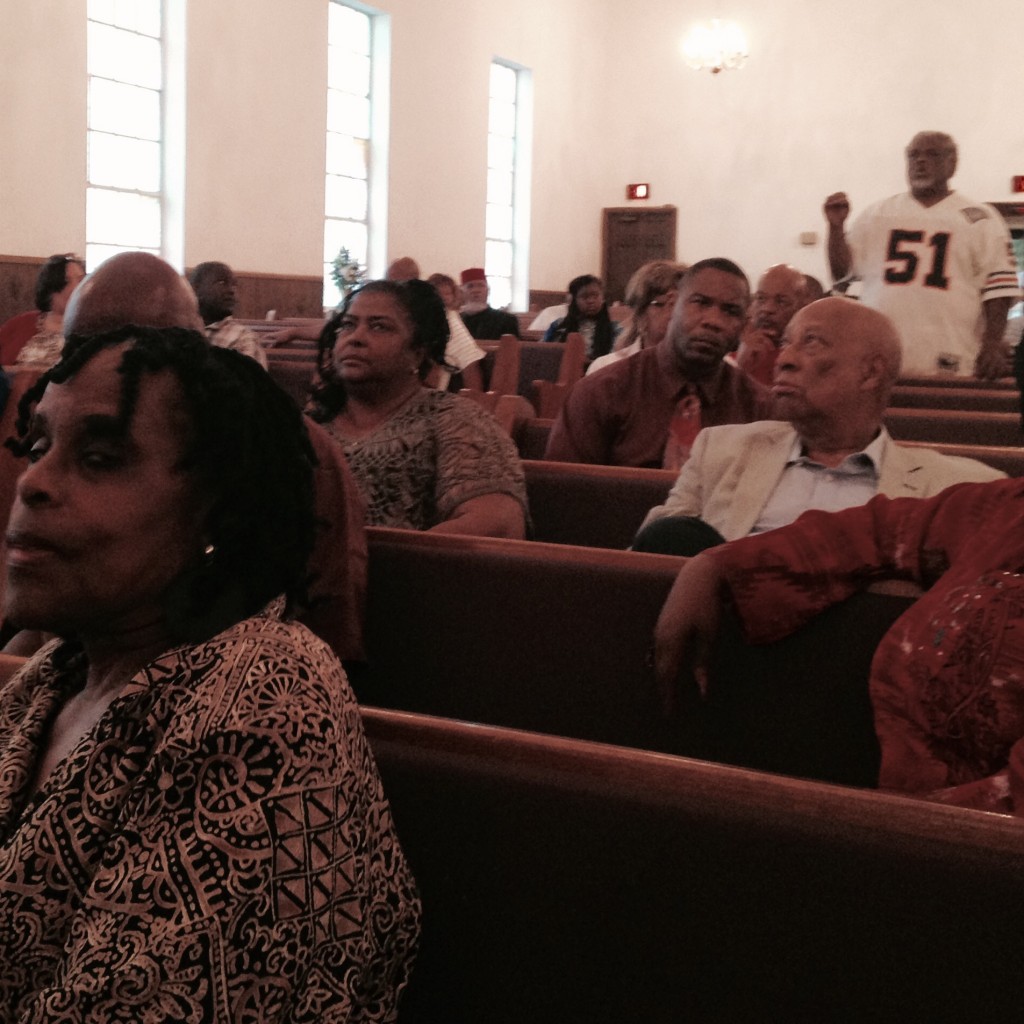
On Monday evening, The Rev. Clifford Johnson held a discussion at northwest Jacksonville’s Zion Hope Baptist Church called “Strengthening the Community: A Shared Responsibility.”
It brought together school board members Connie Hall and Becki Couch, community organizer C. Mickee Brown, gang investigator for DCPS Jeff Shouse and, except for media, a crowd of about 150 African-Americans justifiably concerned about what has happened, what is happening, and what will happen to the youngsters in their communities.
Johnson began by saying, “We’re having tough times in Duval County. But with God’s help, we can make a difference.”
God’s help couldn’t hurt. But as the two-hour meeting revealed, the children in these communities are going to need more than that.
Hall followed up with several blandishments. “Knowledge is power,” she said. “It’s time for us as a community to stand up, to say enough is enough.”
“It’s time for action.”
The first speaker gifted (or cursed) with significant time to make his points was Shouse, a graduate of Edward Waters College and an affable white guy who has been the DCPS gang investigator (the only gang investigator in the whole school district) for a whopping 5½ months.
Looking down at his prepared remarks before the q&a, Shouse described the difference between criminal gang members and criminal gang associates. Apparently, there are 11 criteria that can apply to a gang member, who is determined as such if he or she satisfies two of them.
Shouse said useful things, though with little conviction. He spoke of the “caretaker transitions” and “problems at schools” that lead young teenagers to join gangs, using passive voice language that suggested his experience of those issues was necessarily divorced from the hellish realities so many of those kids experience. Still, the crowd listened.
The question-and-answer period proved more interesting than Shouse’s canned remarks.
When asked what the community could do, his answer betrayed a fundamental lack of understanding of how little many community members actually trust the police.
“See it, say it, stop it,” Shouse said, adding that law enforcement needs “intelligence.”
When asked about the “trust factor” that students had for him, Shouse unwittingly spotlighted the problem: “Elementary schools are great.”
And that’s a good thing. If kindergarten students start doing drive-bys, we’ve got a real big problem.
The questions became more pointed from there.
One person asked how officers expect eyewitness information on a murder, when the same officers might use excessive force in a situation and not be held accountable: “Police officers don’t turn in each other; this is what we see.”
Another, wondering how kids not old enough to drive in some cases are getting “guns and ammo,” asked, “Who are the adults contributing to the delinquency of young children?”
Still more came, before the minister rescued the officer from the fusillade of questions.
Brown, who attended nearby Raines High School and Zion Hope Church as a youth, spoke with firsthand specificity about what leads youngsters to join gangs. Some are “looking for family in the streets” because “they don’t have anyone around to lift them up.”
“For a kid with a jacked-up life, wearing jacked-up clothes, from a jacked-up community, going to a jacked-up school, gang life looks pretty awesome.”
For others, it’s a “family tradition,” she said. “I know there are drug families here; I went to high school with some of these people.”
Describing gang members as “neighborhood terrorists,” Brown laid it out. “If we don’t take care of our broken children, they will break us.”
Don’t look for the schools to fix the issue.
“Schools don’t educate,” she said. “They’re there to remediate.”
And there lies the issue. That and what one audience member, who left Jacksonville to join the military, said.
“I left in 1988,” and the neighborhood is “worse off today. I blame the mayor who is ready to go; I blame Tallahassee.”
The real issues that lead to blight in Jacksonville and so many communities like it boil down to misplaced priorities. Neighborhoods suffer with infrastructure from the Eisenhower era, even as Jacksonville taxpayers finance the world’s biggest scoreboards that ironically enough have been known to cast a garish white floodlight over neighborhoods with dilapidated housing and deteriorated roads at night.
Until the effects of what has been advertised as an economic boom actually trickle down to these neighborhoods and the people who live in them, which have been curiously immune to the salutary benefits of economic expansion, youth gangs will be a recurrent issue, because the conditions that spawn them will have gone unaddressed.



